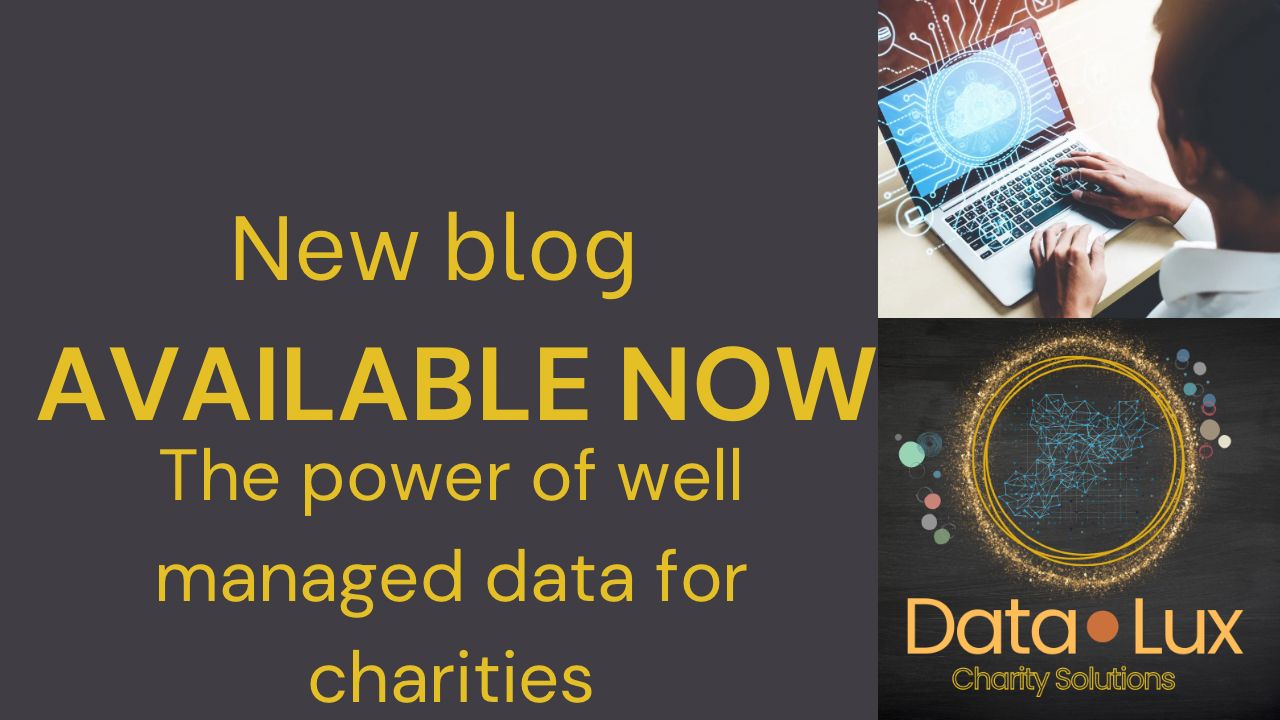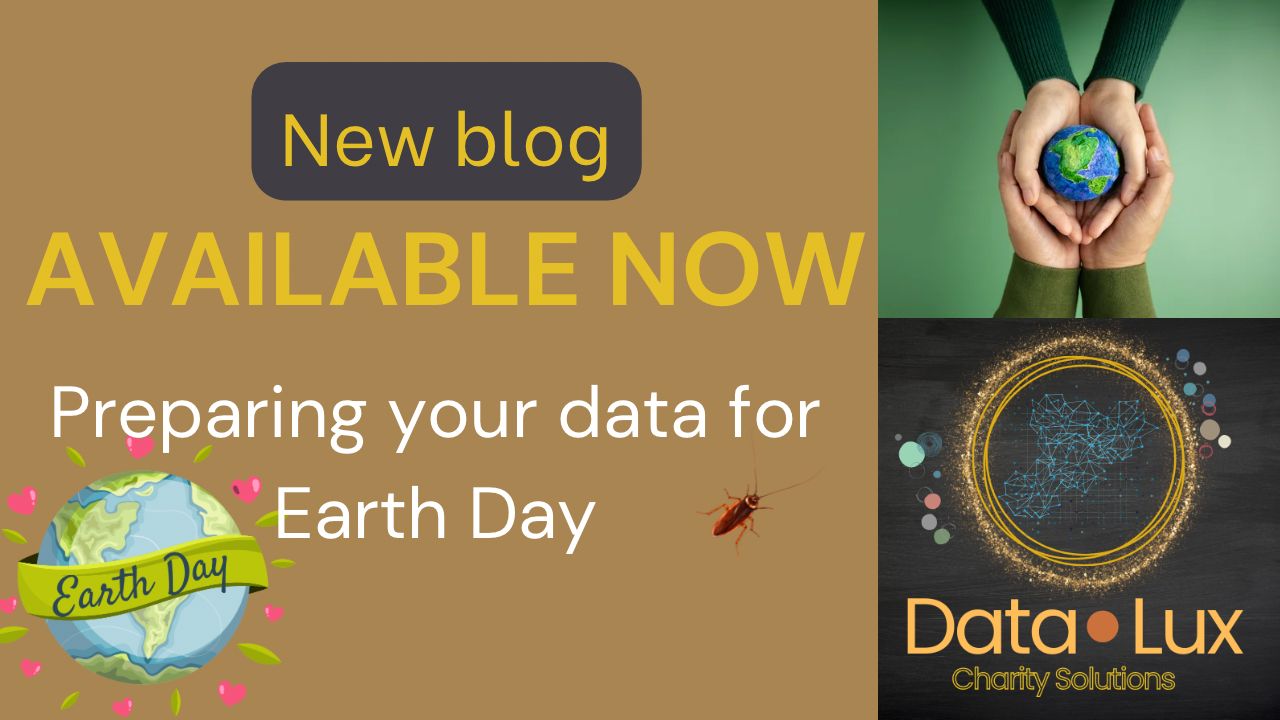In today’s digital world, data is one of the most valuable assets a charity can possess. It holds the power to boost impact, attract more funding, and streamline operations. Well-managed data goes beyond tracking donations or maintaining contact lists; it can transform a charity’s approach to its mission. For charities seeking funding, demonstrating the ability to collect, manage, and leverage data effectively not only appeals to donors but also showcases an organization’s commitment to accountability, transparency, and efficiency.
Here, we explore the core benefits of well-managed data in charities and why funders are increasingly looking for organisations that prioritise data excellence.
The Power of Well-Managed Data for Charities: Unlocking Greater Impact and Funding Opportunities - DataLux Charity Solutions
Enhanced Decision-Making for Greater Impact
Well-managed data provides charities with clear insights into their operations and outcomes, empowering leaders to make informed decisions. By tracking key performance metrics, charities can pinpoint which programs are performing well and which areas need adjustments.
For example:
- Targeted Interventions: Data allows charities to identify specific community needs, leading to more targeted and effective interventions.
- Continuous Improvement: Tracking progress over time allows charities to refine their programs based on real results rather than assumptions.
- Scalable Solutions: Well-managed data helps charities spot trends that could be leveraged to scale successful programs to reach more beneficiaries.
Why it matters for funders: Funders want their investments to yield results. Charities that can demonstrate a data-backed strategy prove that they are making evidence-based decisions that maximize impact, making them a more attractive choice for investment.
Improved Transparency and Accountability
Transparency and accountability are essential values for charities, and they matter deeply to funders who seek to support causes they can trust. Data management enables charities to:
- Track Donor Contributions: Maintain accurate records of where donations go, giving funders confidence in how their money is spent.
- Demonstrate Impact: By providing transparent reports on program outcomes, charities can show funders exactly what their contributions have accomplished.
- Compliance: Adherence to regulatory requirements is simplified when data is well-organised and accessible, reducing risks of penalties or compliance failures.
Why it matters for funders: Donors and grant-makers are more likely to contribute to charities with a transparent, data-backed approach to reporting impact. This assurance in financial and operational integrity can be a deciding factor in securing funds.
Streamlined Operations for Cost Efficiency
A well-managed data system reduces redundancies, optimizes resources, and minimizes administrative costs, allowing charities to allocate more funding toward their mission.
Effective data management enables:
- Automated Processes: Administrative tasks such as donor tracking, volunteer scheduling, and program reporting become easier, freeing up valuable staff time.
- Optimised Resource Allocation: By analysing program costs versus impact, charities can make data-informed choices about where to direct resources for the most value.
- Reduced Duplication of Efforts: Data insights prevent overlap between programs, ensuring funds are spent effectively and maximising outreach potential.
Why it matters for funders: Efficiency translates to increased trust from funders, who prefer to see their resources channelled into impact rather than unnecessary administrative costs.
Streamlined operations can also increase a charity’s capacity to take on more projects or scale current ones.
Personalised Donor Engagement and Retention
Data allows charities to understand their donors on a deeper level, leading to stronger relationships and higher retention rates. By using data insights, charities can:
- Tailor Communication: Understanding donor preferences allows for more meaningful interactions, from personalised emails to targeted campaigns.
- Identify Giving Patterns: Analysing donation history helps charities anticipate when donors might give again, boosting regular contributions.
- Boost Donor Loyalty: By demonstrating measurable impact, charities can foster a sense of partnership with donors, encouraging long-term support.
Why it matters for funders: Funders are often interested in charities with strong donor relations and engagement because it signals sustainability. Charities that retain donors are better positioned to maintain operations and pursue long-term goals, which is attractive for funders focused on creating lasting change.
Better Grant and Funding Applications
For charities seeking grants, having data at their fingertips is a tremendous advantage. With well-managed data, charities can:
- Craft Compelling Proposals: Data on past successes, beneficiaries served, and outcomes achieved provides tangible evidence that strengthens applications.
- Set Clear Goals and Metrics: Funders are more likely to support initiatives with clear objectives, and data can help set realistic and measurable goals.
- Measure and Report Outcomes: Funders increasingly require progress reports. Data management enables charities to track, analyse, and report outcomes effectively, showing funders the tangible impact of their investment.
Why it matters for funders: Charities that can present data-driven proposals and commit to measurable outcomes often stand out in the competitive funding landscape. Funders see such organizations as lower-risk investments with a high potential for real-world results.
Enhanced Collaboration and Partnerships
Data-driven charities are more likely to attract partnerships with other organisations, amplifying their reach and resources. With access to detailed data, charities can:
- Identify Synergies: Find complementary programs and collaborate with partners for more extensive impact.
- Share Impact Metrics: Share insights with partners to demonstrate the value of collaborative efforts and attract co-funding.
- Develop Long-Term Partnerships: When charities can demonstrate their effectiveness and results with data, they build trust with partners, making it easier to secure long-term partnerships.
Why it matters for funders: Funders often prefer to back organizations that work well with others, maximizing resources and avoiding duplicated efforts. Strong partnerships indicate an organisation’s potential for growth, which can be a significant factor in funding decisions.
Conclusion: Data as a Catalyst for Growth and Funding
For charities, the ability to manage data well is no longer just a “nice-to-have”—it’s a game-changer. From improving decision-making and transparency to boosting donor engagement and securing funding, data holds the key to a more effective, impactful
organisation. When charities invest in well-managed data, they don’t just enhance their internal operations; they also become more appealing to funders eager to support organisations capable of producing measurable, long-lasting results.
By embracing data as a core component of their mission, charities can unlock new levels of impact and inspire greater trust among donors, grant-makers, and partners alike. Funders are not only seeking organisations with heart but also those with proof that their work is truly making a difference. Well-managed data is a powerful testament to that proof.




